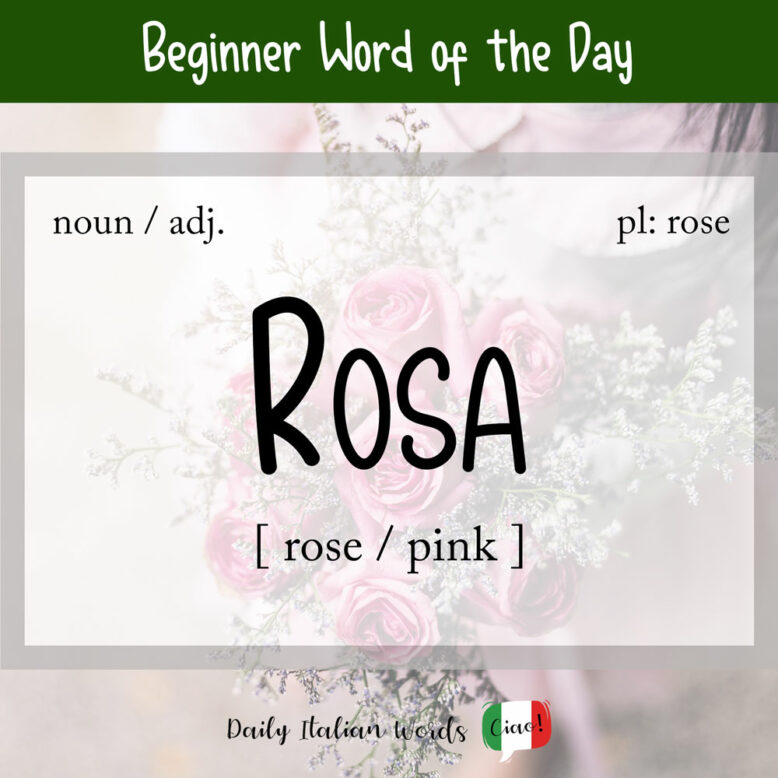The prickly shrub that bears red, pink, yellow or white flowers is called a rosa (feminine, plural: rose) in Italian.

It is also the name given to the colour pink, presumably because many roses come in a pink shade.
Questa rosa mi sembra più rosa che rossa.
This rose looks more pink than red to me.

As an adjective, rosa can also be used to describe things conceived with women in mind. For example, un film rosa is a romantic film (or more colloquially, a chick flick) whereas un romanzo rosa is the name given to romantic fiction of the likes of Mills and Boon and the Harlequin romances.
Trovo che i film rosa siano poco profondi.
I find that chick flicks are shallow.
It is also used to describe a person whose attitude or character is marked by excessive optimism.
Maria vede tutto rosa.
Maria sees everything through pink-coloured glasses.
Rosa is a fairly common feminine name in Italian, just as Rose is in English.
Did you know that…?
An alternative translation for rosa that has nothing to do with the plant is a list or group of qualified or deserving people chosen based on a first selection. For instance, la rosa dei giocatori would translate as the shortlist of players.

Expressions featuring the word ‘rosa’
Essere tutto rose e fiori
Literal translation: to be all roses and flowers
English meaning: to be a bed of roses
Fresco come una rosa
Literal translation: as fresh as a rose
English meaning: as fresh as a daisy
Essere la più bella rosa del giardino
Literal translation: to be the most beautiful rose in the garden
English meaning: to be the most beautiful person or thing
Se son rose fioriranno
Literal translation: if they are roses, they’ll bloom
English meaning: the outcome will reflect the quality of something or someone (often used for newly formed romantic couples)
Heather Broster is a graduate with honours in linguistics from the University of Western Ontario. She is an aspiring polyglot, proficient in English and Italian, as well as Japanese, Welsh, and French to varying degrees of fluency. Originally from Toronto, Heather has resided in various countries, notably Italy for a period of six years. Her primary focus lies in the fields of language acquisition, education, and bilingual instruction.


